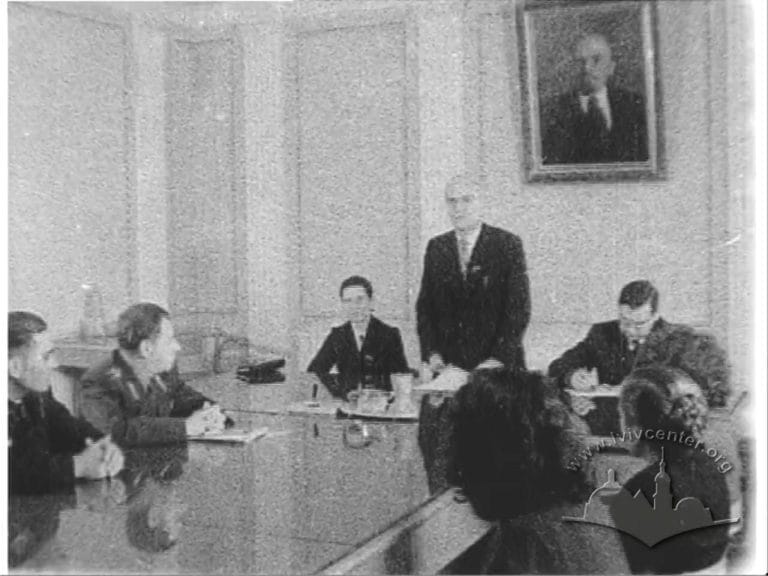Resolution of the Council of Ministers of the Ukrainian SSR, April __, 1956
“On Establishing the Amount of Temporary Allowances for Senior Officials of Soviet Bodies of the Ukrainian SSR”
In accordance with the Resolution of the Council of Ministers of the USSR, No. 385-245ss, dated March 16, 1956, the Council of Ministers of the Ukrainian SSR decides:
1. To establish, effective April 1, 1956, temporary allowances for senior employees of the Soviet bodies of the republic in the amounts outlined in Appendices 1-3.
2. To stipulate that employees who receive service bonuses, supplements to their base salary for length of service, bonuses for handling highly classified documents, and pensions, will have their temporary allowances reduced by the value of the bonuses and pensions received.
3. To allocate additional funds for personal allowances to the official salaries of ministers, department heads of the Ukrainian SSR, and the executive committees of regional, Kyiv, and Sevastopol city councils of workers’ deputies for employees who, under this resolution, are no longer eligible for temporary allowances, as specified in Appendix 4.
Additional personal allowances for executive staff of the Radio and Telegraphic Agency of Ukraine are outlined in Appendix 5.
In cases where the aforementioned employees receive salary supplements for length of service, bonuses for handling highly classified documents, and pensions, the personal supplements to their official salaries will be reduced by the corresponding amounts.
4. With the issuance of this resolution, all previous resolutions of the Council of Ministers of the Ukrainian SSR regarding temporary allowances for senior employees of the Soviet bodies of the republic are hereby revoked.



After Stalin’s death, the “collective leadership” of his associates, who shared power, sought to prevent the concentration of authority in a single individual. One outcome of this was the end of “hybrid” resolutions for determining the compensation of the nomenklatura. Instead, the party and the government began introducing new measures separately but in parallel, with the party maintaining its dominant role. On March 16, 1956, the CPSU Central Committee and the USSR Council of Ministers each adopted resolutions—identical in content—that altered the procedures for calculating temporary financial support. On April 13, the Central Committee of the Communist Party of Ukraine adopted its own decision on financial privileges, and on April 20, it approved a draft resolution on the same topic, which was then ratified by the Council of Ministers. These resolutions did not specify the reasons for the changes.
From this point forward, the Central Committee of the Communist Party of Ukraine set the amounts of temporary financial support for party officials, while the government determined those for Soviet officials. Temporary allowances were tailored individually, varying based on family composition. The government resolution incorporated aspects of social equity by reducing temporary allowances by the amount of any additional bonuses that officials might already receive. For some high-ranking officials, financial privileges were eliminated, but they were compensated with personal allowances. As usual, the specific salaries of these privileged individuals (which, incidentally, saw a modest increase) and the amount of personal allowances for ministries, departments, and executive committees—both regional and in Kyiv and Sevastopol—were detailed in classified appendices.